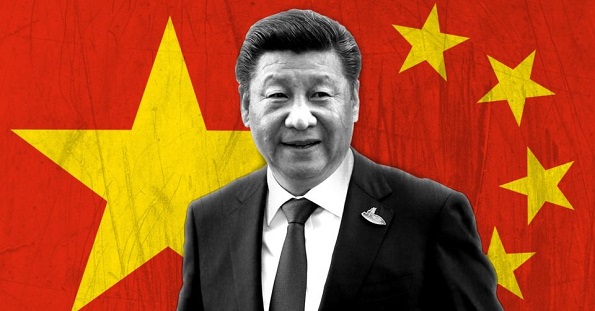Salil Jain
The Oberoi International School, India
To what extent have emerging social movements caused politicians to respond with effective social change?
A social movement must have the capacity to exert pressure on politicians into passing reform and creating real social change without drastic measures such as resorting to violent resistance if it is to be successful. Therefore, the polity of the society in which this change is occurring must be structured such that pressure from the populace on its leaders actually matters. With these terms, emerging social movements that have caused politicians to respond with effective social change in the last year must be regarded as having occurred in societies in which the body politic enjoys rights and freedoms to engage in a public discourse which can change public policy through the use of a democratic process, rather than through violence and revolution. This sort of public discourse and recognition of free and open speech is an idea known as “public reason”, and is frequently encountered in the liberal tradition, a tradition which most modern democracies are steeped heavily in. One must look no further than serious thinkers in the liberal tradition such as Kant, Mill, or Rawls to find the importance of public reason to the functioning of a free society. Therefore, a most worrying trend especially in Western liberal democracies such as the United States or the United Kingdom, is the erosion of public reason with the emergence of recent social movements, showing that although many of these movements have been politically and socially successful some have not, needing a more nuanced view to investigate the central question. Which methods and tactics to apply pressure on authority to create social change have been met with success? Is public reason even necessary or important?
To begin with, taking the issue of racial and social injustice in the West, particularly the Black Lives Matter movement in the United States in the aftermath of the police brutality displayed in the gruesome murder of George Floyd last year, we see how this social movement sparked real social change. It forced politicians across numerous American metropolises to have a hard look at police reform by targeting institutional racism that manifested itself in bad policies and protocols for many American police departments. According to a Vox article published on May 25, 2021 for example, as a result of the Black Lives Matter protests from the previous year, “82 percent of the city’s voters approved the ballot initiative Measure 26-217, which changed the city’s charter to create a new community police oversight board that, once set up, will be the country’s most powerful.” The article continues saying the new board will be able to, “investigate police misconduct — and, to complete its work, will be able to subpoena documents and compel the release of evidence, witness testimony, and the cooperation of sworn officers.” This is just one of many positive examples of how public reason was used by citizens in their communities, due to the effect of civil society, activism, and local engagement with politicians that brought about change in a democratic way.
On the other hand however, looking at a situation such as the recent protests by students at Oxford University to remove the statue of key figures of Oxford history such as Cecil Rhodes, a noted colonial apologist and social Darwinist, they take an approach that may be corrosive to public reason and were not immediately unsuccessful. We must pierce the veil to understand why. Although well-intentioned with the goal of creating an inclusive culture on campus, this sort of social movement to create social change makes arguments condemning historical figures by the standards of today and induces guilt by association to any who’s priorities may differ, such as those emphasising the preservation of history. Condemning a colonialist in an era when colonialism was a universal institution is absolutely fair, since despite its ubiquitous nature, colonial practices were still controversial at the time. Yet the approach of students at Oxford is not this. Some have implied that moral values do not evolve and the past must be judged purely through the lens of the present, adding that policymakers and administrators at Oxford implicitly endorse white supremacy if they are supportive of preserving the statue or are generally hesitant about the issue for any reason at all, as seen in a BBC article from May 2021, “Campaign group Rhodes Must Fall said: ‘No matter how Oriel College might try to justify their decision, allowing the statue to remain is an act of institutional racism. Pretending that this is a choice made due to financial costs is a slap in the face with the hand of white supremacy.’” Accusing another of racism or white supremacy if they are insensitive to the motivations and feelings that a cultural symbol such as the Cecil Rhodes statue evokes may seem to be a strong approach and effective in the short-term in convincing detractors to combat the existence of a racist symbol now. However, this method of social movements to apply pressure on authority inhibits the ability of those with differing views to speak freely in the future.
Public reason is at risk as we move beyond the objective realm as seen in the case of Black Lives Matter, where facts and figures about law enforcement and police brutality are measurable and solvable, into the subjective, where arguments for or against people’s feelings on a cultural symbol and monument may be more ambiguous and harder to solve. It is hard for stakeholders to freely exchange views and ideas, and to reason with one another on how to solve a common problem—racial and social injustice—if they are automatically disqualified from the conversation by opponents who say they do not share this goal in the first place. Thus, although some emerging social movements have been successful at causing politicians to respond with effective social change particularly in the West, the methods and argumentation by other groups that have not been as successful are because they do not follow the tenets of public reason. Public reason is important, and we must save it.
Bibliography
Collins, Sean. “George Floyd’s Death One Year Later: Here’s Where Police Reform Stands in Minneapolis and Other Cities.” Vox, Vox, 25 May 2021, www.vox.com/22446715/george-floyd-one-year-anniversary-police-reform-austin portland-minneapolis.
“Kant. What Is Enlightenment.” Columbia.edu, 2021, www.columbia.edu/acis/ets/CCREAD/etscc/kant.html.
Race, Michael. “Cecil Rhodes: Refusal to Remove Oxford Statue a ‘Slap in the Face.’” BBC News, BBC News, 20 May 2021,
www.bbc.com/news/uk-england-oxfordshire-57189928.





